LETTER 257
您可以在百度里搜索“The Works of Charles and Mary Lamb — Volume 5 艾草文学(www.321553.xyz)”查找最新章节!
LETTER 257
CHARLES LAMB TO S. T. COLERIDGE
Jan. 10th, 1820.
Dear Coleridge,—A Letter written in the blood of your poor friend would indeed be of a nature to startle you; but this is nought but harmless red ink, or, as the witty mercantile phrase hath it, Clerk's Blood. Damn 'em! my brain, guts, skin, flesh, bone, carcase, soul, TIME, is all theirs. The Royal Exchange, Gresham's Folly, hath me body and spirit. I admire some of Lloyd's lines on you, and I admire your postponing reading them. He is a sad Tattler, but this is under the rose. Twenty years ago he estranged one friend from me quite, whom I have been regretting, but never could regain since; he almost alienated you (also) from me, or me from you, I don't know which. But that breach is closed. The dreary sea is filled up. He has lately been at work "telling again," as they call it, a most gratuitous piece of mischief, and has caused a coolness betwixt me and (not a friend exactly, but) [an] intimate acquaintance. I suspect, also, he saps Manning's faith in me, who am to Manning more than an acquaintance. Still I like his writing verses about you. Will your kind host and hostess give us a dinner next Sunday, and better still, not expect us if the weather is very bad. Why you should refuse twenty guineas per sheet for Blackwood's or any other magazine passes my poor comprehension. But, as Strap says, you know best. I have no quarrel with you about præprandial avocations—so don't imagine one. That Manchester sonnet I think very likely is Capel Lofft's. Another sonnet appeared with the same initials in the same paper, which turned out to be Procter's. What do the rascals mean? Am I to have the fathering of what idle rhymes every beggarly Poetaster pours forth! Who put your marine sonnet and about Browne into "Blackwood"? I did not. So no more, till we meet.
Ever yours,
C. L.
[Charles Lloyd, returned to health, had written Desultory Thoughts in
London, in which both Coleridge and Lamb appeared, Coleridge as *** and
Lamb as **. The poem was published in 1821. Lloyd probably had sent it
in manuscript or proof to Lamb and Coleridge. Some of Lloyd's lines on
Coleridge run thus:—
How shall I fitly speak on such a theme?
He is a treasure by the world neglected,
Because he hath not, with a prescience dim,
Like those whose every aim is self-reflected,
Pil'd up some fastuous trophy, that of him
Might tell, what mighty powers the age rejected,
But taught his lips the office of a pen—
By fools he's deem'd a being lost to men.
No! with magnanimous self-sacrifice,
And lofty inadvertency of fame,
He felt there is a bliss in being wise,
Quite independent of the wise man's name.
Who now can say how many a soul may rise
To a nobility of moral aim
It ne'er had known, but for that spirit brave,
Which, being freely gifted, freely gave?
Sometimes I think that I'm a blossom blighted;
But this I ken, that should it not prove so,
If I am not inexorably spited
Of all that dignifies mankind below;
By him I speak of, I was so excited,
While reason's scale was poising to and fro,
"To the better cause;" that him I have to bless
For that which it is comfort to possess.
No! Those who most have seen me, since the hour
When thou and I, in former happier days,
Frank converse held, though many an adverse power
Have sought the memory of those times to raze,
Can vouch that more it stirs me (thus a tower,
Sole remnant of vast castle, still betrays
Haply its former splendour) to have prov'd
Thy love, than by fresh friends to have been lov'd.
The story of one of Lloyd's former indiscretions is told in the earlier letters of this collection. I cannot say what friend he quite alienated, unless it was James White. The nature of the later offence of which Lamb accuses Lloyd is now unknown.
"That Manchester sonnet." A sonnet entitled "Manchester," referring to the Luddites, and signed C. L., by Capel Lofft. Procter's "C.L." sonnet was upon Macready.
The marine sonnet was "Fancy in Nubibus" (see page 559).
"About Browne" refers to a note by Coleridge on Sir Thomas Browne in the same number, signed G.J.—possibly James Gillman's initials reversed.
We learn from a letter from Coleridge to J. H. Green (January 14, 1820) that the visit to Highgate which Lamb mentions was a New Year visit of annual occurrence. Lamb's reference to praeprandial avocations touches upon Coleridge's habit of coming down to see his guests only when dinner was ready.] The Works of Charles and Mary Lamb — Volume 5




